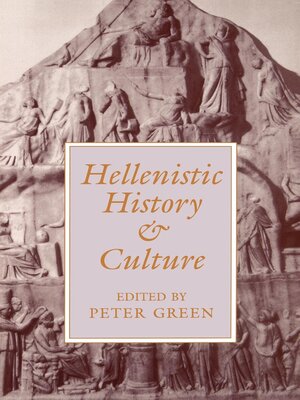
Sign up to save your library
With an OverDrive account, you can save your favorite libraries for at-a-glance information about availability. Find out more about OverDrive accounts.
Find this title in Libby, the library reading app by OverDrive.



Search for a digital library with this title
Title found at these libraries:
| Library Name | Distance |
|---|---|
| Loading... |
In a 1988 conference, American and British scholars unexpectedly discovered that their ideas were converging in ways that formed a new picture of the variegated Hellenistic mosaic. That picture emerges in these essays and eloquently displays the breadth of modern interest in the Hellenistic Age.
A distrust of all ideologies has altered old views of ancient political structures, and feminism has also changed earlier assessments. The current emphasis on multiculturalism has consciously deemphasized the Western, Greco-Roman tradition, and Nubians, Bactrians, and other subject peoples of the time are receiving attention in their own right, not just as recipients of Greco-Roman culture.
History, like Herakleitos' river, never stands still. These essays share a collective sense of discovery and a sparking of new ideas—they are a welcome beginning to the reexploration of a fascinatingly complex age.
In a 1988 conference, American and British scholars unexpectedly discovered that their ideas were converging in ways that formed a new picture of the variegated Hellenistic mosaic. That picture emerges in these essays and eloquently displays the breadth o
A distrust of all ideologies has altered old views of ancient political structures, and feminism has also changed earlier assessments. The current emphasis on multiculturalism has consciously deemphasized the Western, Greco-Roman tradition, and Nubians, Bactrians, and other subject peoples of the time are receiving attention in their own right, not just as recipients of Greco-Roman culture.
History, like Herakleitos' river, never stands still. These essays share a collective sense of discovery and a sparking of new ideas—they are a welcome beginning to the reexploration of a fascinatingly complex age.
In a 1988 conference, American and British scholars unexpectedly discovered that their ideas were converging in ways that formed a new picture of the variegated Hellenistic mosaic. That picture emerges in these essays and eloquently displays the breadth o







